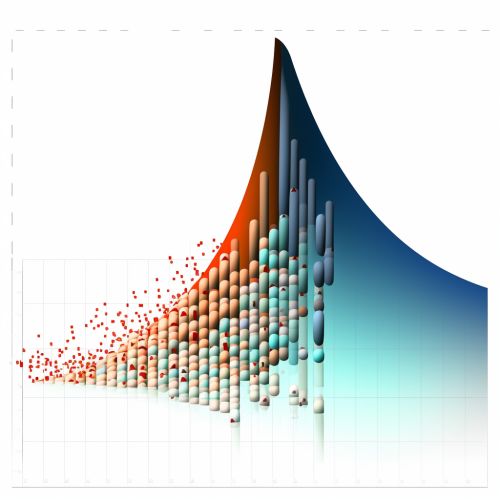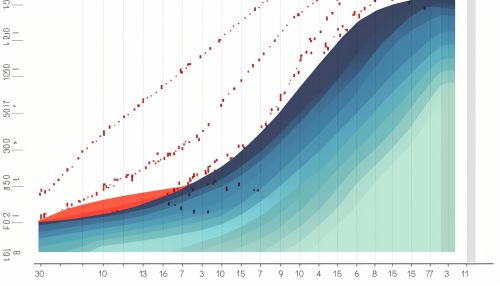Binomial distribution
Introduction
The binomial distribution is a probability distribution that describes the number of successes in a fixed number of independent Bernoulli trials with the same probability of success. The Bernoulli distribution is a special case of the binomial distribution where a single trial is conducted. It is a type of discrete probability distribution.
Definition
The binomial distribution is defined by two parameters: the number of trials (n) and the probability of success in a single trial (p). A random variable X that is binomially distributed can take on any value between 0 and n, inclusive. The probability mass function of a binomially distributed random variable is given by:
P(X = k) = C(n, k) * p^k * (1 - p)^(n - k)
where C(n, k) is the binomial coefficient, which is the number of ways to choose k successes from n trials.
Properties
The binomial distribution has several properties that make it a useful tool in statistics and probability theory. These include:
1. Mean: The expected value or mean of a binomially distributed random variable is np. 2. Variance: The variance of a binomially distributed random variable is np(1 - p). 3. Skewness: The skewness of a binomial distribution is (1 - 2p) / sqrt(np(1 - p)). 4. Kurtosis: The kurtosis of a binomial distribution is (1 - 6p(1 - p)) / np(1 - p).
Applications
The binomial distribution has many applications in various fields such as statistics, economics, psychology, and engineering. It is commonly used in hypothesis testing, survey sampling, and modeling binary data.
Derivation
The binomial distribution can be derived from the Bernoulli distribution. Consider a sequence of n independent Bernoulli trials, each with probability of success p. The number of successes in this sequence is a binomially distributed random variable.
Generalizations
The binomial distribution can be generalized in several ways. The negative binomial distribution extends the binomial distribution to the case where the number of trials is not fixed in advance but is determined by the number of failures. The multinomial distribution extends the binomial distribution to the case where each trial can result in more than two possible outcomes.
See Also


